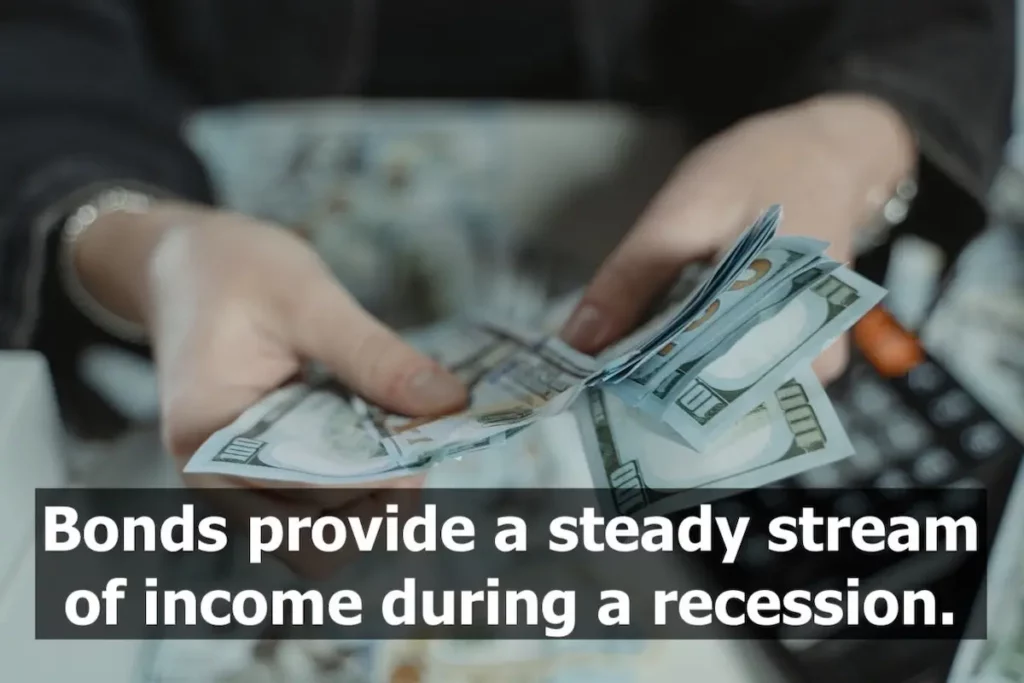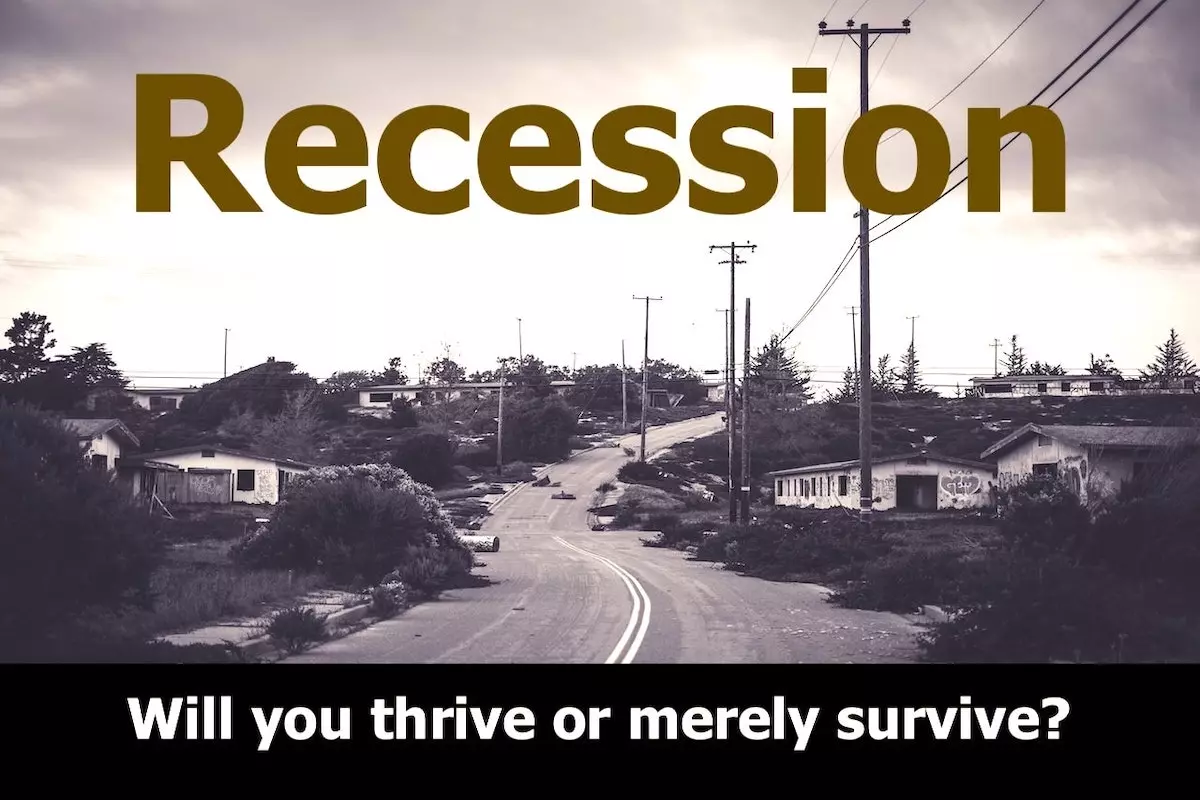The Asian Financial Crisis, which began with the collapse of the Thai baht in July 1997, set off a contagion across Southeast and East Asia. In Japan, Hokkaido Takushoku Bank, one of the country’s top 10 banks, collapsed under a gargantuan pile of bad loans. In South Korea, unemployment more than tripled and 80% of households experienced a drop in income. In Indonesia, a drastic devaluation of the rupiah led to steep price increases. Widespread violence and riots ensued, and President Suharto was forced to step down after 30 years in power.
Although Singapore was less affected by the crisis, a general loss of demand and confidence throughout the region meant that many businesses endured hard times. I was studying overseas then, so I was rather insulated from all the bad news. However, a friend of mine had to stop his studies abruptly and return home as his father was forced into bankruptcy.
A recession may be triggered by various events, from a pandemic to a financial crisis such as the above. During a recession, markets are volatile and many people wonder how to best protect their investments.
While it’s tough not to panic and rush for the exit, it’s important to know that recessions also present an opportunity for investors to take advantage of market volatility and position themselves for long-term success.
In this article, I will discuss:
- What is a Recession
- What Makes Investing during a Recession Different
- Prepare for a Recession by Strengthening Your Defence
- Strategies for Investing in a Recession
1. What is a Recession
Broadly speaking, a recession is defined as a period of economic decline in which gross domestic product (GDP) falls for two or more consecutive quarters. It can last anywhere from a few months to several years.
But I think Harry S. Truman gave the best definition:

LOL…
During a recession, unemployment goes up, wages stagnate or decrease, home sales and prices drop, and stock prices decline. The combination of these factors means that consumers spend less, driving down demand for goods and services.
- Rising unemployment: Companies retrench workers as business activity slows down.
- Stagnant or decreasing wages: Salaries freeze or decrease as companies attempt to cut costs.
- Falling home sales and prices: Home sales and prices plummet as consumers have less disposable income and are more careful about making big purchases.
- Bear market: Stock markets experience a general downturn due to negative sentiments of the economy as a whole.
Recessions often catch people off guard, but the next one probably won’t. I’m sure everyone is quite sick of hearing and talking about the looming recession by now. The thing is, nobody knows exactly when a recession will occur, how severe it will be and how long it will last. Economic cycles are hard to predict, but if businesses and consumers feel that the outlook is bleak, they will typically cut their spending, making a recession more likely to take place.
As an investor, I think it’s best to expect the unexpected and be prepared (financially, mentally and emotionally) for the worst at all times.

Check out: Yearly Financial Health Checklist
2. What Makes Investing During a Recession Different
Investing during a recession presents a unique set of challenges and opportunities.
On the one hand, stock markets tend to be volatile and unpredictable, making it difficult to determine when to buy or sell a given investment. There’s also a higher risk of default for companies with high debt loads. As markets tumble and portfolios deplete, some investors may struggle to keep their emotions in check and end up selling their stocks to prevent further losses, thus sabotaging their long-term success.
As markets tumble and portfolios deplete, some investors may struggle to keep their emotions in check and end up selling their stocks to prevent further losses.
On the other hand, recessions also present rare opportunities for investors to take advantage of depressed stock prices and potentially maximise returns in the long run. For instance, they can identify stocks that are unvalued as these stocks are more likely to increase in value when the economy recovers.
3. Prepare for a Recession by Strengthening Your Defence
Like a soccer team, a well-balanced portfolio needs both defence and offence. It’s a tad late in the day if you only start thinking about your defensive strategies when shit hits the fan. Your defence needs to be fully operational before that. Here are four basic defensive investing strategies to help you prepare for a recession:
Maintain Healthy Liquidity
Liquidity refers to the amount of cash you have on hand and your ability to quickly convert assets into cash. Your portfolio should have a liquid component at all times as it’s your first line of defence during a crisis. Having cash that you can access immediately or at a short notice will help you stay calm when times are bad and prevent you from selling your investments at the worst possible time. If all your money is tied up in long-term or highly illiquid assets, you may be forced to sell something at a loss if you run into cash flow problems.
How much liquidity is enough then? At the very least, you should set aside an emergency fund that’s equivalent of six months’ worth of living expenses. Depending on your overall strategy and financial situation, you may also want to keep additional cash reserves, which you can deploy when an attractive investment opportunity arises.

Check out: The Role Singapore Savings Bonds Play in Our Retirement Plan
Buy High-quality Bonds
From a defensive standpoint, bonds adds stability to your portfolio as they are low-risk, fixed income assets that give regular interest payments over a set period of time. This steady stream of income can be your lifeline during a recession.
You can build a ‘bond ladder’ by buying a series of high-quality bonds with different maturities. This allows you to take advantage of different interest rates and diversify your investments. That’s what Mr Wow and I have done.
Government and corporate bonds with AAA credit ratings are generally regarded as safe investments. These issuers are considered to be financially stable and have a strong capacity to meet their financial obligations. Nonetheless, do note that even bonds with AAA credit ratings carry some risk, so you should still conduct you own research before investing in any bond.

Check out: 4 Main Asset Classes: A Beginner’s Guide
Avoid Speculative Stocks
Recession or not, Mr Wow and I have always stayed away from speculative stocks (e.g. penny stocks) as they lack financial stability. These stocks are high-risk high-reward, and their prices can fluctuate significantly over a short period of time. We’re long-term investors, not short-term traders, so we’re more interested in the fundamental value of our investments than market price movements.
Speculative stocks are high-risk high-reward, and their prices can fluctuate significantly over a short period of time.
I would advise that you avoid these stocks as well, especially if you’re close to retirement. The risks associated with them are just not worth taking. Instead, target quality stocks of companies with strong financials, competitive advantage and growth potential. These stocks tend to have lower historical volatility and can help to limit downside risk. You may be able to buy them at fair or even bargain prices during recessions.
Buy Defensive Stocks
Investing in defensive or recession resistant stocks also helps to reduce losses and potentially generate good returns. These stocks tend to be in industries that are less impacted by economic downturns. They include:
- Healthcare, e.g. medical providers, pharmaceuticals companies
- Consumer staples, e.g. groceries, household products
- Guilty pleasures, e.g. cigarettes, alcohol (maybe Starbucks for some people, LOL…)
- Utilities
- Insurance
- Banking
4. Strategies for Investing in a Recession
A good defence will give you a degree of insulation and confidence to ride out recessionary periods. You probably won’t be cruising along the whole time, but at least you don’t have to worry about drowning. What a relief! To maximise returns and minimise risk, here are four actions to take when the market heads south:
Do Absolutely Nothing
The first action is to take no action and that’s one of the toughest things to do. It’s normal to feel anxious when you see your portfolio endure one beating after another. Nevertheless, it’s important to remember that recessions come and go, and the one you’re experiencing shall pass too.
If your portfolio is well-diversified and the stocks you hold remain fundamentally strong (you need to monitor them, of course), you should stick with them through thick and thin. As long as you don’t sell, it’s just paper loss, so don’t let negative macroeconomic factors derail your plan.
Check out: The Compound Effect: Supercharge Your Wealth to Abundance and Tame Your Emotions: Let Your Wealth Compound Uninterrupted
Cut Losses If You Must
What if you made a judgement error? What if the fundamentals of a stock change for the worse as the recession plays out? If your investment thesis no longer holds up and all evidence tells you that the stock has turned sour for good, you should cut your losses. Don’t hope, don’t pray, don’t wait for it to return to your purchase price so that you can break even. Not all stocks will eventually bounce back and you know that. Get out while you can.

Diversify with Exchange-traded Funds (ETFs)
If you have some dry powder during a recession, congrats! Lower stock prices mean your money will buy you more. If you don’t know what stocks to invest in, my recommendation is to buy exchange-traded funds (ETFs). Although Mr Wow and I invest in individual stocks, index ETFs still make up a large portion of our portfolio.
There are several benefits to investing in ETFs. First, ETFs are passive investments as they are designed to track an index or a basket of securities. That means you do not have to spend time to actively manage your investments. Second, ETFs offer instant diversification, a key strategy for reducing risk and maximising returns. You never have to worry that your investments will go to zero. Third, ETFs typically have lower fees than actively managed mutual funds, making them a cost-effective investment option.
When you invest in ETFs, you never have to worry that your investments will go to zero.
Check out: Why Index Funds are Perfect for Do-Nothing Investors and Understanding Index Funds: Does the Tortoise Really Win?
Apply Dollar Cost Averaging (DCA)
Unless you’re a skilled investor who is good at doing lump sum investing, you’re probably better off applying dollar cost averaging (DCA).
DCA is an investment strategy that involves spreading your capital over several purchases at regular intervals. By investing consistently throughout a recession, you avoid committing your money all at once. This helps to reduce the impact of volatility on your overall purchase and is a safe way to slowly build a position in quality stocks.
Note: In a V-shaped recovery, lump sum investing has the potential to generate better returns than dollar cost averaging as you can take advantage of the sharp increase in prices after the market bottom. However, in a U-shaped recovery, dollar cost averaging may generate better returns than lump sum investing due to the slower rise in prices after the market bottom.

Investing during a recession can be daunting, but it’s possible to make a profit if you have a good defence and a strong stomach, and know what types of investments to consider and how to best take advantage of market opportunities. With the right strategies, it’s possible to navigate the turbulent waters and come out on top.
Learn how to mitigate investment risk with a diversified portfolio in Portfolio Diversification: Understanding its Pros and Cons.
You may also like: Trading vs. Investing: What You Need to Know | Why We Love Dividend Investing but It’s Not For Everyone


